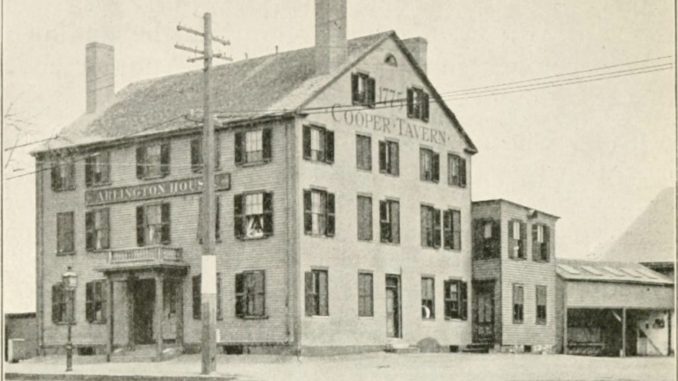
If your ancestor was a taverner or innkeeper, you might locate records of his or her proprietorship (such as receipts, licenses, and account books) at a historical society or at a university archive. Proprietors of taverns (also known as a “grog shop” or “dram shop”) were required to petition court for a license which was annually renewable.
In Georgia, for instance, an amended law in 1791 required that would-be tavernkeepers petition the inferior court. The justices would then consider the petitioner’s ability “to keep good and sufficient accommodations for travellers, their horses, and attendants.” A 50-pound bond was required, approved by the court, for the condition of keeping “an orderly and decent house.” The license was for a one-year term, subject to annual renewal—“if the court think proper.” Inferior court justices, at the first term of every year, set rates and prices charged at taverns for liquors, diet, lodging, and stabling. 1
In early Pennsylvania, there were a large number of taverns—especially following the Revolutionary War. “Philadelphia had an extraordinary number of public houses, and many were needed; for the city had a vast number of visitors, and a great current of immigration poured into that port,” noted historian Alice Morse Earle. 2
When opening or relocating, a taverner or innkeeper advertised in newspapers by giving a statement of proprietorship and the location.
The Flagon and Trencher: Descendants of Colonial Tavern Keepers was established in 1962. Its goals are to collect information on taverns, tavernkeepers, tavern customs, recipes, and menus. It also maintains genealogical records showing descent from colonial tavern-keeping ancestors. Membership is limited to those who can prove direct descent from an individual operating a tavern, inn, ordinary, or other type of hostelry before 4 July 1776 (within any of the American colonies then in existence). The site has a list of approved ancestors in the states of Alabama, Connecticut, Delaware, Georgia, Maine, Maryland, New Jersey, New York, North Carolina, Pennsylvania, Rhode Island, South Carolina, Vermont, and Virginia.
Reba Masterson Shepard’s Index to Volumes I through X, The Flagon and Trencher, Descendants of Colonial Tavern Keepers (Stuart, Fla.: the author, 1995), is accessible at the Family History Library in Salt Lake City. The microfilm number is 2055233, item 6.
NOTES AND REFERENCES
- Oliver H. Prince, A Digest of the Laws of the State of Georgia: Containing the Constitution of the United States; the Constitution of the State of Georgia as Amended; the Statute of Frauds and Perjuries; the Habeas Corpus Act, &c. (Athens, Ga.: the author, 1837), p. 839.
- Alice Morse Earle, Stage-Coach and Tavern Days (New York: The MacMillan Company, 1915), p. 33.
